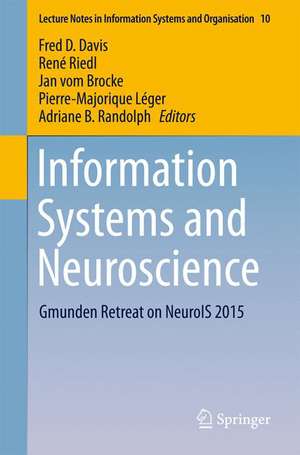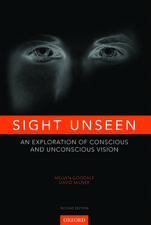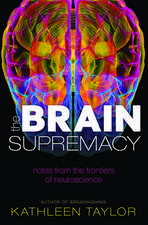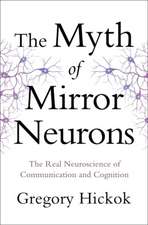Information Systems and Neuroscience: Gmunden Retreat on NeuroIS 2015: Lecture Notes in Information Systems and Organisation, cartea 10
Editat de Fred D. Davis, René Riedl, Jan vom Brocke, Pierre-Majorique Léger, Adriane B. Randolphen Limba Engleză Paperback – iun 2015
| Toate formatele și edițiile | Preț | Express |
|---|---|---|
| Paperback (4) | 384.70 lei 6-8 săpt. | |
| Springer International Publishing – iun 2015 | 384.70 lei 6-8 săpt. | |
| Springer International Publishing – 6 oct 2016 | 553.79 lei 38-44 zile | |
| Springer International Publishing – 17 noi 2017 | 637.28 lei 6-8 săpt. | |
| Springer International Publishing – 4 noi 2018 | 640.37 lei 6-8 săpt. |
Din seria Lecture Notes in Information Systems and Organisation
- 18%
 Preț: 948.16 lei
Preț: 948.16 lei - 15%
 Preț: 711.21 lei
Preț: 711.21 lei - 15%
 Preț: 643.34 lei
Preț: 643.34 lei - 15%
 Preț: 641.71 lei
Preț: 641.71 lei -
 Preț: 382.36 lei
Preț: 382.36 lei - 15%
 Preț: 640.06 lei
Preț: 640.06 lei - 15%
 Preț: 639.59 lei
Preț: 639.59 lei - 15%
 Preț: 643.16 lei
Preț: 643.16 lei -
 Preț: 384.86 lei
Preț: 384.86 lei - 15%
 Preț: 641.71 lei
Preț: 641.71 lei - 15%
 Preț: 642.18 lei
Preț: 642.18 lei - 15%
 Preț: 650.55 lei
Preț: 650.55 lei - 18%
 Preț: 947.35 lei
Preț: 947.35 lei - 15%
 Preț: 639.08 lei
Preț: 639.08 lei - 15%
 Preț: 640.24 lei
Preț: 640.24 lei - 15%
 Preț: 641.03 lei
Preț: 641.03 lei - 15%
 Preț: 638.57 lei
Preț: 638.57 lei - 18%
 Preț: 945.47 lei
Preț: 945.47 lei - 15%
 Preț: 639.41 lei
Preț: 639.41 lei - 15%
 Preț: 643.84 lei
Preț: 643.84 lei - 15%
 Preț: 646.75 lei
Preț: 646.75 lei - 15%
 Preț: 635.15 lei
Preț: 635.15 lei - 15%
 Preț: 644.82 lei
Preț: 644.82 lei - 15%
 Preț: 648.89 lei
Preț: 648.89 lei - 20%
 Preț: 331.58 lei
Preț: 331.58 lei - 15%
 Preț: 656.43 lei
Preț: 656.43 lei - 15%
 Preț: 579.20 lei
Preț: 579.20 lei - 15%
 Preț: 644.63 lei
Preț: 644.63 lei - 18%
 Preț: 1001.32 lei
Preț: 1001.32 lei - 20%
 Preț: 414.49 lei
Preț: 414.49 lei -
 Preț: 389.31 lei
Preț: 389.31 lei - 18%
 Preț: 883.75 lei
Preț: 883.75 lei - 15%
 Preț: 644.63 lei
Preț: 644.63 lei - 18%
 Preț: 944.82 lei
Preț: 944.82 lei - 18%
 Preț: 1122.24 lei
Preț: 1122.24 lei - 24%
 Preț: 828.00 lei
Preț: 828.00 lei - 15%
 Preț: 642.83 lei
Preț: 642.83 lei - 18%
 Preț: 944.67 lei
Preț: 944.67 lei - 18%
 Preț: 945.47 lei
Preț: 945.47 lei - 18%
 Preț: 888.63 lei
Preț: 888.63 lei - 18%
 Preț: 951.14 lei
Preț: 951.14 lei - 18%
 Preț: 1009.08 lei
Preț: 1009.08 lei - 18%
 Preț: 727.00 lei
Preț: 727.00 lei
Preț: 384.70 lei
Nou
Puncte Express: 577
Preț estimativ în valută:
73.62€ • 79.94$ • 61.84£
73.62€ • 79.94$ • 61.84£
Carte tipărită la comandă
Livrare economică 22 aprilie-06 mai
Preluare comenzi: 021 569.72.76
Specificații
ISBN-13: 9783319187013
ISBN-10: 3319187015
Pagini: 190
Ilustrații: XIII, 219 p. 39 illus., 2 illus. in color.
Dimensiuni: 155 x 235 x 17 mm
Greutate: 0.34 kg
Ediția:2015
Editura: Springer International Publishing
Colecția Springer
Seria Lecture Notes in Information Systems and Organisation
Locul publicării:Cham, Switzerland
ISBN-10: 3319187015
Pagini: 190
Ilustrații: XIII, 219 p. 39 illus., 2 illus. in color.
Dimensiuni: 155 x 235 x 17 mm
Greutate: 0.34 kg
Ediția:2015
Editura: Springer International Publishing
Colecția Springer
Seria Lecture Notes in Information Systems and Organisation
Locul publicării:Cham, Switzerland
Public țintă
ResearchCuprins
NeuroIS Knowledge Discovery Approach to Prediction of Traumati Brain Injury Survival Rates: A Semantic Data Analysis Regression Feasibility Study.- The Status Quo of Neurophysiology in Organizational Technostress Research: A Review of Studies Published from 1978 to 2015.- The Impact of Interruptions on Technology Usage: Exploring Interdependencies between Demands from Interruptions, Worker Control, and Role-based Stress.- An Investigation of the Nature of Information Systems from a Neurobiological Perspective.- A Hot Topic – Group Affect Live Biofeedback for Participation Platforms.- (Online)-buying Behavior and Personality Traits: Evolutionary Psychology and Neuroscience based.- Choice of a NeuroIS Tool: An AHP-based Approach.- Foreign Live Biofeedback: Using others’ neurophysiological data.- What does the skin tell us about information systems usage? A literature-based analysis of the utilization of electrodermal measurement for IS Research.- A Novel, Low-cost NeuroIS Prototype for Supporting Bio Signals Experimentation Based on BITalino.- The evaluation of different EEG sensor Technologies.- Choice Architecture: Using Fixation Patterns to Analyze the Effects of Form Design on Cognitive Biases.- Neurophysiological Analysis of Visual Syntax in Design.- The Influence of Cognitive Abilities and Cognitive Load on Business Process Models and their Creation.- An Evolutionary Explanation of Graph Comprehension using fMRI.- Investigation of the relationship between visual website complexity and users' mental workload: A NeuroIS perspective.- Measuring Cognitive Load During Process Model Creation.- Cognitive Differences and their Impact on Information Perception: An Empirical Study Combining Survey and Eye Tracking Data.- Using fMRI to Explain the Effect of Dual-Task Interference on Security Behavior.- Measuring Appeal in Human Computer Interaction: A Cognitive Neuroscience-Based Approach.- Mobile App Preferences: What Role Does Aesthetics and Emotions Play?.-Identifying Neurological Patterns Associated with Information Seeking: A Pilot fMRI Study.- Proposal for the Use of a Passive BCI to Develop a Neurophysiological Inference Model of IS Constructs.- Emotion is not what you think it is: Startle Reflex Modulation (SRM) as a measure of affective processing in NeuroIS.- Measuring flow using psychophysiological data in a multiplayer gaming context.- Using A Cognitive Analysis Grid to Inform Information Systems Design.- Research directions for methodological improvement of the statistical analysis of electroencephalography data collected in NeuroIS.- Measuring visual complexity using: neurophysiological data.- Using NeuroIS to Better Understand Activities Performed on Mobile Devices.
Textul de pe ultima copertă
This book presents the proceedings of the Gmunden Retreat on NeuroIS 2015, reporting on topics at the intersection of Information Systems (IS) research, neurophysiology and the brain sciences. Readers will discover the latest findings from top scholars in the field of NeuroIS, which offer detailed insights on the neurobiology underlying IS behavior, essential methods and tools and their applications for IS, as well as the application of neuroscience and neurophysiological theories to advance IS theory.
Caracteristici
Summarizes the latest advances in the cutting-edge research field of Neuro-Information-Systems (NeuroIS) Includes works of top scholars in the field of Neuro-Information-Systems Includes supplementary material: sn.pub/extras
Notă biografică
Fred D. Davis is Distinguished Professor and Bobby G. Stevenson Chair in Information Technology at Texas Tech University.
René Riedl is a Professor for Digital Business and Innovation at the University of Applied Sciences Upper Austria and an Associate Professor for Business Informatics at the University of Linz.
Jan vom Brocke is a Professor for Information Systems at the University of Liechtenstein, Hilti Chair of Business Process Management, and Director of the Institute of Information Systems.
Pierre-Majorique Léger is a Professor in the Department of Information Technologies at HEC Montréal, Director of the ERPsim Lab and Co-director of the Tech3Lab.
Adriane B. Randolph is an Associate Professor of Information Systems in the Michael J. Coles College of Business at Kennesaw State University (KSU) and Executive Director of the KSU BrainLab.


















